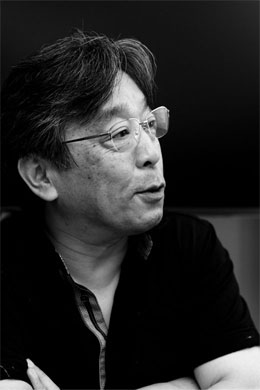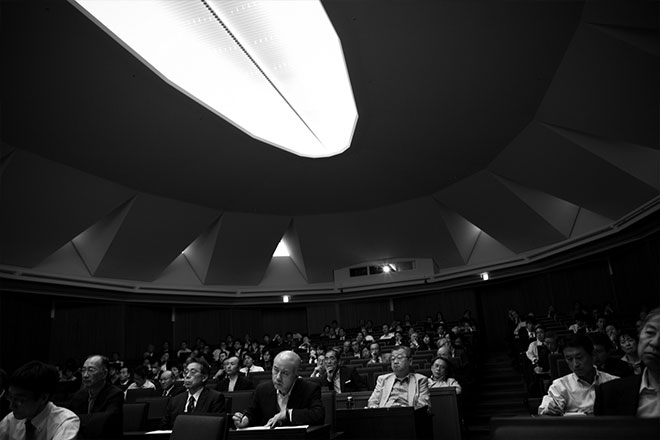Beyond All or Nothing Arguments: The Importance of Strategic and Flexible Risk Responses
Taketoshi Taniguchi / Professor, Policy Alternatives Research Institute, the University of Tokyo

——— What made you decide to research composite risks and national risks?
Taniguchi:As was illustrated by the recent Great East Japan Earthquake, in today’s society, one large risk can result in a chain of risks that severely damages the country’s economic growth and peoples’ lives at various levels. Awareness of these composite risks is spreading globally. Thus, resilience—a national risk management strategy and the ability to deal flexibly with, and recover from, risk—is important.
However, strengthening a nation’s risk management capability requires gathering and analyzing information regarding risk and a fundamental assessment of what risk entails. Furthermore, the country’s decision makers must thoroughly understand the outcome of this assessment. Such understanding is a necessary condition to implement national risk management, and I thought I could make a contribution in this regard. This is how I began my research on the topic.
——— Was there an increase in international awareness regarding the importance of risk management after the Earthquake?
Taniguchi: The so-called “Lehman shock” happened in 2008, so I think a bit earlier than the earthquake. However, I think that awareness did become stronger because of the Earthquake. Thus, people began to talk about resilience.
Before that, people had been discussing risk management in terms of how to prevent risk. Now, they realize that the risk management approach has limitations and that risk is inevitable, so they have changed the discussion to focus on how to deal with risk and swiftly recover from it.
For example, the United States is analyzing multiple scenarios involving all types of hazards to identify what capabilities will be required to deal with such risks should they occur. Using this information, they can move toward preparing their core capabilities as a nation, from human resources to technology.
However, Japan has not gotten that far yet. Indeed, we talk much regarding the importance of resilience, but we still have not done any analysis, so as a country we have not reached the point of setting priorities. We need a strategy for deciding how to efficiently distribute a limited amount of resources.

——— Consider the example of nuclear power. After the Earthquake, public opinion on nuclear power switched, from being absolutely safe to wanting it totally banned. Do you feel a strong wave of populism in Japan?
Taniguchi: Yes, I do. Things are either black or white. However, risk management involves examining the gray zone in between the black and the white and considering various scenarios to make better choices. Japanese society tends to overreact, so that the discussion becomes one of considering every possible eventuality. I do not mean to say that the Japanese people are incapable of reaching an agreement. I am just saying that we must show what is in the gray zone.
——— Where do you think the discussion should start?
Taniguchi:First, we should assess our vulnerabilities and the risks they pose. Thereafter, I think it is essential to discuss how we should prioritize to keep the society functioning when a risk occurs, in other words—to use a medical term—where we should perform triage. During such an event, a political decision that produces maximum results with limited resources will be critical. This way, we would create awareness on how we are going to face situations that are in the gray zone. I absolutely believe that the government should initiate this.

——— Finally, Professor Taniguchi, please tell us regarding your research.
Taniguchi: I would like to conduct a quantitative analysis of several risks among those that we have discussed, but this would require different types of data that may not be available at the university level. Nevertheless, even if the discussion is only on a qualitative level, I want to devise some scenarios involving hazards that exist in our society and the type of risks that may arise, where they might arise, and how they are correlated. I would be happy if my research could contribute to everyone’s understanding of what could happen if certain types of events occurred in our increasingly complex society.
